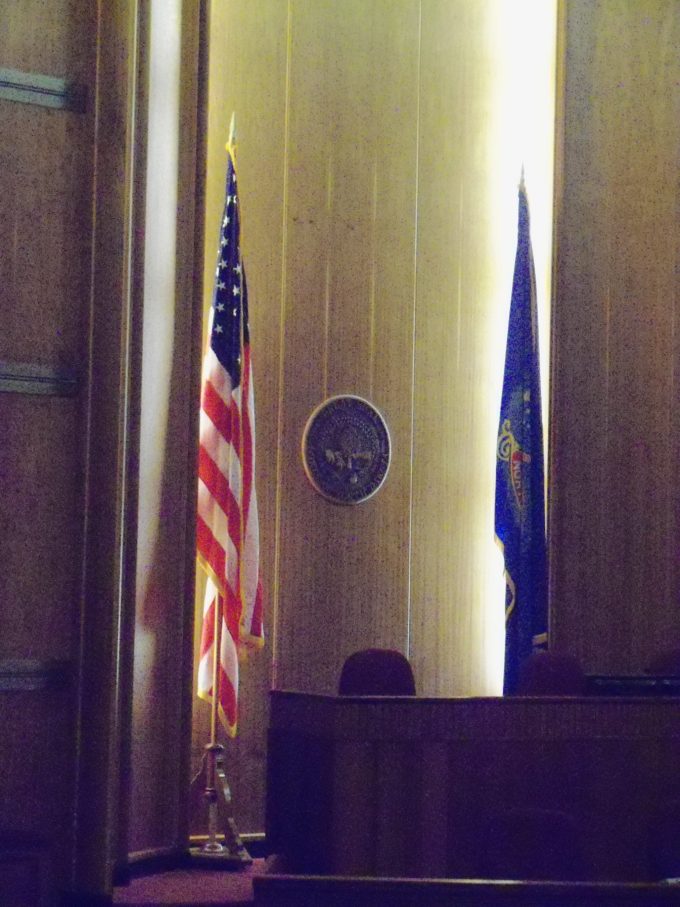
Sunday, 25 August 2019
…whereas you do not know what will happen tomorrow. For what is your life? It is even a vapor that appears for a little time and then vanishes away. James 4:14
James now builds upon what he had just said. The readers (whoever they may be) were presumptuous and said, “Today or tomorrow we will go to such and such a city, spend a year there, buy and sell, and make a profit.” The words were presumptuous and boastful because they made a claim upon a matter as if it had already been settled, but which they had no right to the claim in the first place. As James tells them, “whereas you do not know what will happen tomorrow.”
Our next breath, much less what will happen later in the day or on the next day, is not guaranteed. To assume that we have control over time is to put ourselves in the place of God, who alone knows the future. What He is fully aware of is completely unknown to us. This is a concept that Solomon spoke of centuries before –
“Do not boast about tomorrow,
For you do not know what a day may bring forth.” Proverbs 27:1
A day may bring an earthquake. It may bring forth a heart attack. It may bring forth a car crash or a snake bite. We have no idea what lies ahead of us, and so to lay claim to “tomorrow,” when we are still unsure about “today,” is the height of arrogance. James then asks his reader to consider this –
“For what is your life?”
The question is a broad one that could be answered in a million ways, but he has already set the parameters for the expected answer. He is speaking of time, and so the answer to the question should likewise be dealing with time, particularly the present. One could ask, “What is your life at this very moment in time?”
Again, he is not asking about the condition or quality of life at this moment of time, but rather of its relation to the future. And so the question could then be further refined as, “Is the beating of your heart now (signifying life which exists) any determining factor of it still being beating in a day, or in an hour, or in one minute?”
Again, Solomon reflected on this same type of thought in the book of Ecclesiastes –
“For who knows what is good for man in life, all the days of his vain life which he passes like a shadow? Who can tell a man what will happen after him under the sun?” Ecclesiastes 6:12
Man doesn’t know what the state of his existence will be from moment to moment, and he certainly can’t tell what will happen after him, when his existence ends. And that could be at any moment. A shadow passes as the sun moves, and the sun constantly moves. Further, a shadow can also move as a body moves in relation to the sun. And some bodies move very quickly. Therefore, a shadow can come and go in a heartbeat. Because of this, James says something akin to what Solomon said with the words, “It is even a vapor that appears for a little time and then vanishes away.”
The verbs are present participles. Young’s translates them, “for it is a vapour that is appearing for a little, and then is vanishing.” There is no set timeframe for the event. It happens and then it ends as it is happening. One can think of Solomon’s words which appear right at the opening of the book of Ecclesiastes –
havel havelim ha’kol havel – “Vapor of vapors the all is vapor.” One can walk outside on a cold morning and see his breath. It is a vapor which appears, and within a short moment, the vapor disappears. This is what Solomon says everything is, and this is what James says our life (which is our personal “everything”) is. It is appearing and it is vanishing.
Solomon’s admonition for this condition is found in Ecclesiastes 12. Jesus gives a thought concerning the matter in Luke 12:13-21. Take time to read those passages today.
Life application: James says our life is like a mist. It comes and it is gone before our eyes. Job says –
“Man who is born of woman
Is of few days and full of trouble.
2 He comes forth like a flower and fades away;
He flees like a shadow and does not continue.” Job 14:1, 2
The Bible speaks of our life as fragile and temporary many, many times. Because of this, it implores us to seek God while we can. More often than not, those who face death will try to find religion quickly. The problem is that we may not find the truth in the religion we seek. In such desperation our minds become over-taxed with the stress of the moment and we may grab onto a faith which is misdirected.
However, God has given us a wonderful plan of redemption, and it is available to all people. To call on God in the wrong way is to fail to call on God at all, so we need to pursue His offering now, while our heads and thoughts are clear. Because your life is so very temporary, make the best of your time in the present by seeking after God and calling on the Lord Jesus for your salvation. As Paul states as clearly as possible –
“In an acceptable time I have heard you,
And in the day of salvation I have helped you.” 2 Corinthians 6:2
A voice says, “Cry out.” And I said, “What shall I cry?” “All men are like grass, and all their glory is like the flowers of the field. The grass withers and the flowers fall, because the breath of the LORD blows on them. Surely the people are grass. The grass withers and the flowers fall, but the word of our God stands forever.” Amen.




